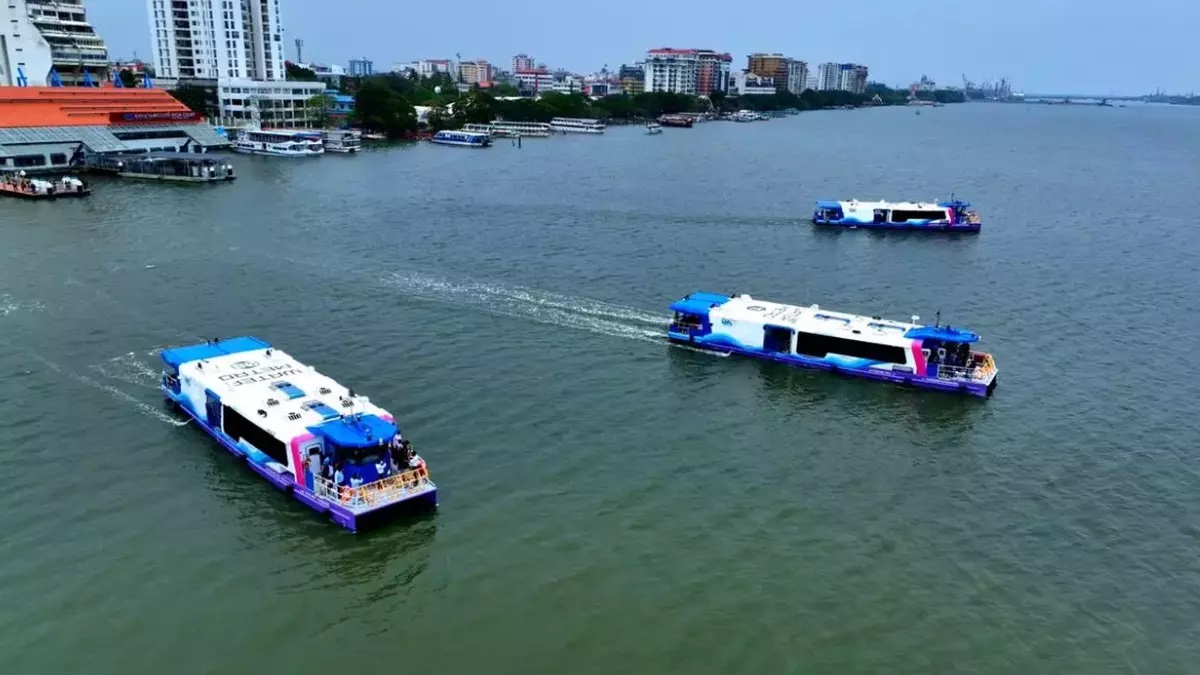The Ministry of Ports, Shipping and Waterways has greenlit feasibility studies to replicate the successful Kochi Water Metro (KWM) model in 17 major locations across India.
The move signals a transformative shift in public transportation planning—one that may redefine how India’s riverine and coastal cities commute.The Kochi Water Metro, which began commercial operations in April 2023, is the country’s first integrated water-based public transit system powered by hybrid-electric technology. Connecting 10 islands through a 76-kilometre network, the service has already logged over 4 million passenger rides in under a year, with average daily ridership exceeding 6,000 since October last year. The project, a collaboration between the Kerala government and Germany’s KfW Bank, is now seen as a scalable solution for urban transport in ecologically sensitive regions.
Feasibility studies will be rolled out in three phases, beginning with key cultural and religious hubs like Prayagraj, Varanasi, and Ayodhya, along with Gandhinagar, Patna, and Srinagar. Subsequent phases will assess potential in cities such as Goa, Guwahati, Kolkata, and Mumbai, among others. These studies will examine the ecological viability of the waterbodies, passenger demand forecasts, and infrastructure feasibility, including the scope for renewable-powered ferry systems.
Unlike traditional infrastructure-heavy metro systems, water metros demand minimal land acquisition and exert a significantly lower ecological footprint. The Kochi model’s specially designed vessels are tailored to preserve aquatic biodiversity while delivering high-frequency, low-emission service. It also supports inclusive mobility by catering to both tourists and daily commuters through affordable pass systems.
Alsoo Read : https://urbanacres.in/land-pooling-to-transform-tripunithura-into-key-transport-hub/
Beyond its environmental credentials, the water metro has proved to be an economic stimulant for local communities and a fresh boost for Kerala’s tourism sector. Its success has resonated with urban planners and policymakers alike, particularly in cities facing rapid urbanisation, traffic congestion, and infrastructure stress.Experts point out that inland water transport remains one of India’s most underutilised assets. Properly developed, it can become a cornerstone of low-carbon transit systems. The water metro initiative also aligns with India’s broader commitment to net-zero emissions and climate-resilient infrastructure development under the National Action Plan on Climate Change.
If effectively implemented, the pan-India rollout could not only ease mobility issues but also reimagine how Indian cities integrate nature with urban living. The promise lies in creating cleaner, quieter, and more accessible transport systems that align with the realities of both geography and growing populations.
The success of the Kochi Water Metro may well be remembered as the point when India’s urban transit turned its gaze to its rivers—not just as resources, but as routes.
Also Read: https://urbanacres.in/kochi-metro-phase-2-road-design-raises-traffic-concerns/


